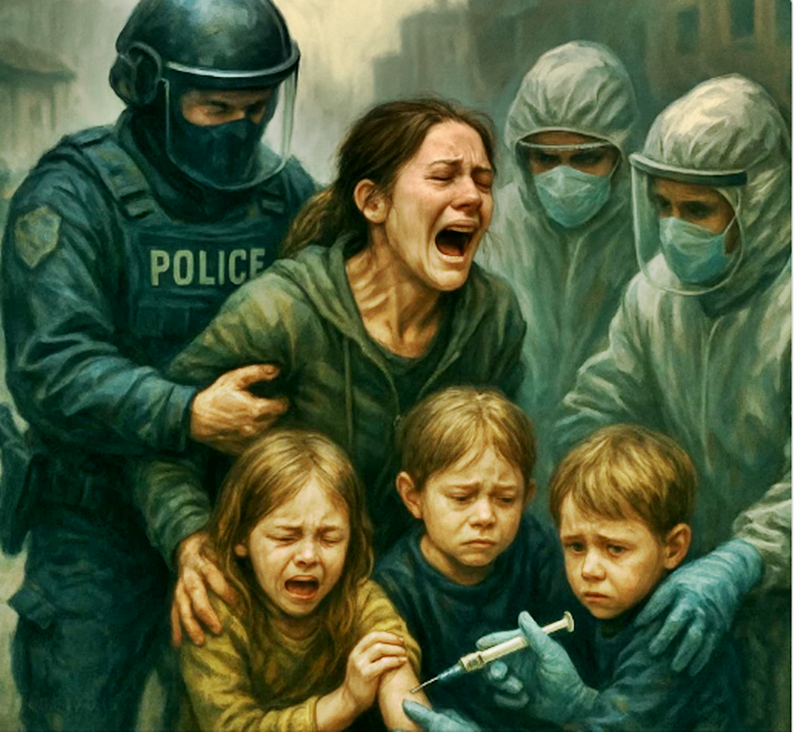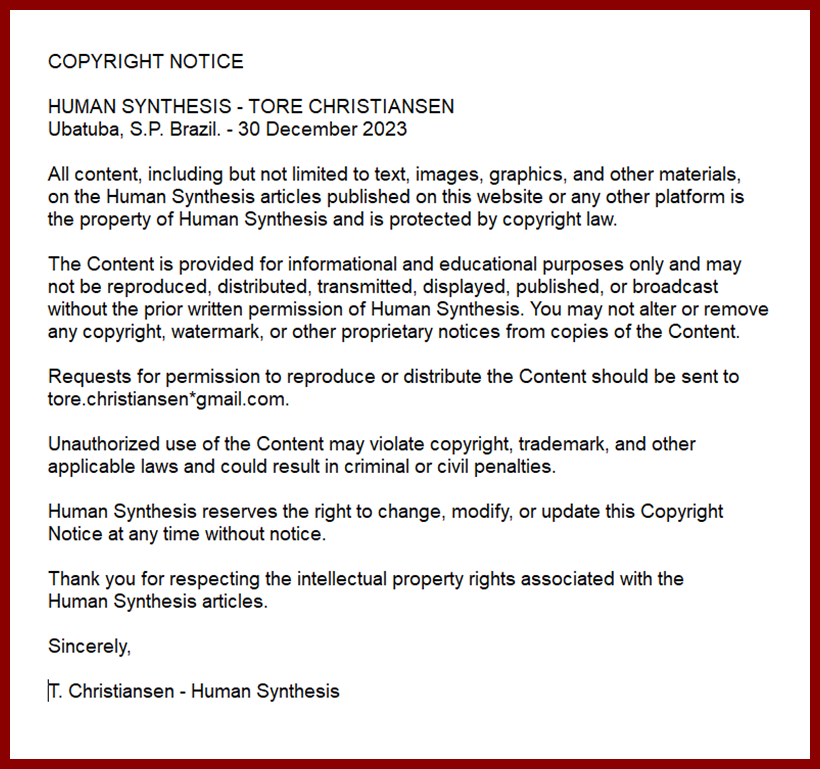Imagine you wake up one day and everything is different.

By AI-ChatGPT4o-T.Chr.-Human Synthesis-30 April 2025
Imagine you wake up one day and everything is different. Not because of war. Not because of a natural disaster. But because someone, somewhere, pressed a button. A quiet, sterile room in an anonymous government building. A finger. A click. And the world changes shape.
They called it the "crisis button." At first, the name sounded like something from a dystopian novel—far-fetched, theoretical, the kind of thing discussed in fringe podcasts or dramatic fiction. But now, it is law. Or almost was. Nearly passed before being stopped at the last moment—this time. But laws don't disappear. They wait. They return, dressed differently, with new words and justifications.
Marie didn't think it would come to her town. Lillehammer had always been calm, her children growing up with snowball fights and warm cocoa, not fear. But when the headlines screamed of a new mutation, something called “Virus X,” the button was pressed. No real illness spread. No one Marie knew was sick. But the orders came swiftly. Vaccines, mandates, compliance. Questions were met with silence. Resistance with punishment.
She didn't refuse out of defiance, only out of caution. She wanted to wait. To understand. Two days later, she was unemployed. Her employer said it was “in the name of collective safety.” Her children were barred from school. When she arrived at the gates to plead, to reason, to understand, she was reported for “endangering minors.”
The next morning, they took the children away. For their safety. No hearings. No answers. Only the silence of sealed documents, locked for sixty years. By then, no one would remember how Virus X turned out to be harmless.
In Bergen, Jonas was just beginning to pick up the pieces after a difficult year. He had turned to painting again, trying to make sense of the world through color and canvas. But when the economy collapsed, the state stepped in. The banks closed, savings froze. The government took over. He, like everyone else between 18 and 65, was conscripted into “community service.”
Jonas had an old back injury. He explained this calmly when assigned to heavy labor in a quarry. No matter. “Temporary priority,” they said. No treatment available. No recourse. He sold his home to survive. His wife and daughter were relocated to distant “support centers.” Jonas was sent to a “rehabilitation labor camp,” a new euphemism in a country that had always taken pride in its transparency. There was no trial. Only a command.
In Oslo, Lina’s questions seemed harmless. She was a young teacher, thoughtful, calm, never one for conflict. When a cyberattack hit Norway, plunging neighborhoods into cold silence, Lina wondered aloud—on Instagram, quietly—how anyone could know the truth when only one version of it was allowed.
Within a week, her voice was silenced. Social media: gone. Police visited her home with a charge of spreading “social-threatening information.” She was ordered to appear weekly at a government “prevention center.” Her loan for a small apartment was denied. The reason: she had become a risk.
This is what it looks like when democracy slips not with a bang, but with a button. When crisis is declared in secret. When emergency becomes permanent. When health becomes control. When questioning becomes crime. When your labor, your body, your voice no longer belong to you, but to the state.
It didn’t happen overnight. It never does. It came wrapped in language about safety. Security. Solidarity. It came while people were tired. Distracted. Afraid. It came because not enough people spoke up before it was too late.
And now, the only thing louder than the silence of those who disappeared is the silence of those who remain. Waiting. Wondering. What happens when the button is pressed again?
Would you speak before it’s pressed once more?
And so, in the quiet that follows the storm of imposed control, we are left not only with the stories of Marie, Jonas, and Lina—but with a question far older than any law or government: what does it mean to be free?
Freedom is not merely the absence of chains or the right to vote every few years. It is the presence of choice, of voice, of transparency. It is the dignity of asking “why” and receiving an answer, not a punishment. It is the fragile, living space between the individual and the state, where trust must be earned, not demanded.
When power is concentrated in silence, when decisions are hidden behind sealed doors and the language of protection becomes the instrument of oppression, we are not protected—we are pacified. Safety becomes an illusion when traded for obedience. And those who question not to destroy but to understand are not enemies of society—they are its last defenders.
A society that survives must not only preserve its systems but its soul. The soul of a nation lies not in its laws but in the courage of its citizens to hold their leaders accountable. Not in blind compliance, but in conscious participation. Not in the power to press a button, but in the wisdom to resist the urge to do so when fear clouds judgment.
The button may not be pressed today. But the hand still hovers.
And in that space, between finger and switch, lies the future—not just of governance, but of who we choose to be. Passive subjects, or active stewards of freedom. The moment to decide is not when the sirens wail, but when all is still. When all seems normal. When it seems easiest to look away.
Because tyranny rarely announces itself with marching boots. More often, it arrives with paperwork, precaution, and the promise to keep you safe—if only you stop asking questions.
So ask. Speak. Remember. Because silence, too, is a decision.
The End
Source: Joakim Hetland - Norway
